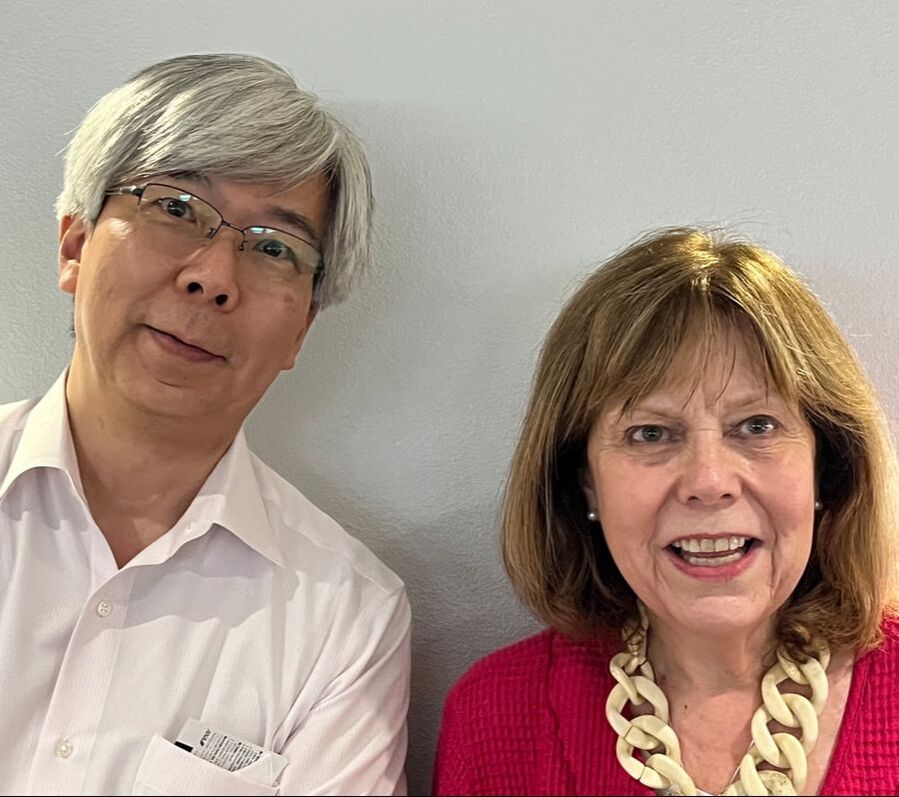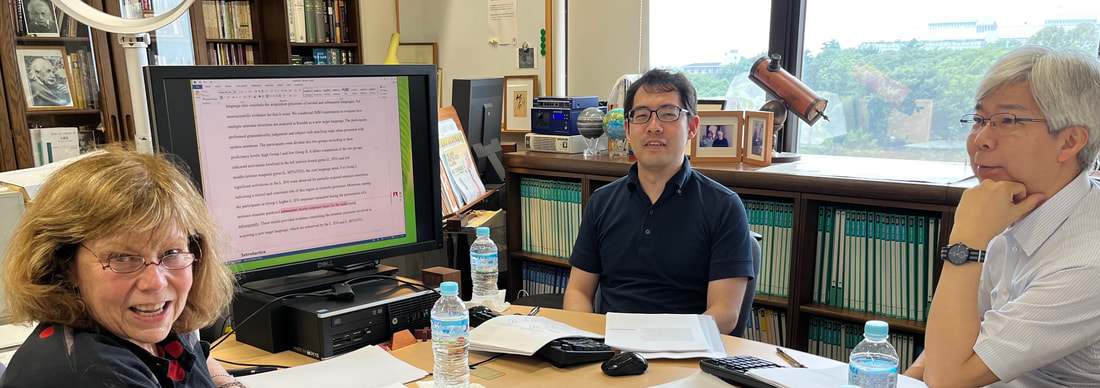|
Kuni Sakai of the University of Tokyo and Suzanne Flynn of MIT.
Investigators Suzanne Flynn, Keita Umejima, and Kuni Sakai collaborating in Tokyo.
|
LEX Joint Research Project on Multilingualism and the BrainDr. Suzanne Flynn, Professor of Linguistics and Language Acquisition at MIT and Drs. Kuni Sakai and Keita Umejima, Professors at the University of Tokyo who are involved in neuroscience and linguistic research have embarked on a series of research projects on multilingualism and the brain. The first project was conducted using fMRI machines in Dr. Sakai's Lab at the University of Tokyo and examined to what extent multilingualism provides cognitive and linguistic benefits. Participants included trilingual LEX / Hippo members, as well as non-members.
The exciting first results were published in 2021 in the journal, Scientific Reports. Using fMRI and behavioral analyses, the researchers found that multilinguals have a demonstrated neural advantage over bilinguals in acquiring new languages. This provides neural confirmation of the cumulative-enhancement model -- “The more languages you know the easier it gets.” -- developed by Dr. Flynn based on previous behavioral studies. Visit this report to read all about it! A second paper appeared in the same journal in 2024. This paper provides additional support for the cumulative enhancement model, as well as evidence that L2, L3, L4, etc. language acquisition is the same as L1 language acquisition (second, third, etc. language acquisition is the same as first language acquisition.) The results confirm that it is possible to learn new languages at any age. There is no such thing as a critical period for language as many have traditionally believed. See the report. |
Current Research on Bilingualism |
Multlingualism is the natural state for humans1 and is beneficial to individuals cognitively, linguistically, and socially.2 Multilingualism also benefits society through the facilitation of cross-cultural under-standing and communication.3 More than two thirds of the world is bilingual or multilingual.4
Existing research on bilingualism demonstrates cognitive advantages to children and adults in the following areas: executive function--ability to pay attention, plan and organize, and remember details;6 mental flexibility;7 abstract thinking;8 metalinguistic skills--awareness and control of linguistic components, including awareness of the listener and ability to speak appropriately in different situations;9 and delay in onset of symptoms of dementia and Alzheimers.10 |
Current Research on Multilingualism |
While there is not as much research available on multilingualism, anecdotal information and a couple of studies suggest that these positive effects are multiplied with multilingualism. For example, “Ellen Bialystok at York University in Canada has found that speaking two languages delayed dementia diagnosis by five years. Those who knew three languages, however, were diagnosed 6.4 years later than monolinguals, while those fluent in four or more languages enjoyed an extra nine years of healthy cognition.”11
LEX has accumulated anecdotal evidence that it is more effective to learn several languages at one time, and that a multilingual/multicultural approach is the surest way to create shining young people who will be the global citizens and leaders of tomorrow. We look forward to the results of our new research projects. |
1 Flynn 2013 2 Paradowski 2015 3 Marian 2012 4 Crystal 1997 5 Nzai, 2013 6 Bialystok 2004 7 Kovacs 2009 8 Steiner 2009 9 Bialystok 1994 10 Gollan 2011 11 Robson 2015


